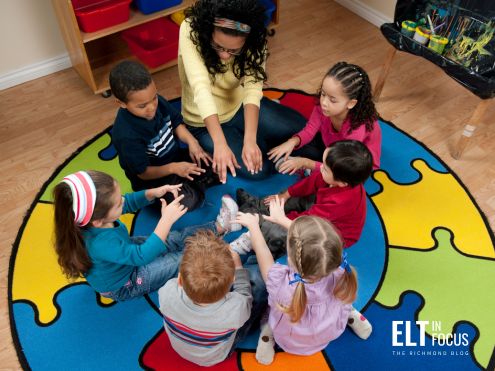Reading is a superpower that unlocks almost everything in life, from tackling schoolwork to allowing us to escape and explore imaginary universes. Yet, here in Spain, our students' reading comprehension levels are struggling to keep up with the rest of Europe. Let’s take a look at what’s happening and how we as teachers can help to turn things around.
Why reading comprehension matters
Before we look at a few solutions, let’s take a second to understand why reading comprehension matters so much. Reading isn’t just about decoding words - it’s about making sense of what we read and connecting it to ideas that matter. It’s the foundation for learning in every subject, whether it’s solving math problems, understanding historical events or learning English. The ability to read well opens the door to creativity and critical thinking, giving our students the tools they need to thrive.
What’s going wrong?
So, why are reading levels slipping in Spain? Here are a few commonly given reasons:
- Low motivation: For many students, reading feels like a chore. Without access to books that grab young people’s attention it’s no surprise that many young people struggle to engage.
- Lack of books and role models in the home: In Spain, only about half the population read regularly for pleasure. If children and teenagers fail to see reading as a normal part of life at home, it’s tough to build those habits at school. This is compounded by a lot of reading material now being stored on devices which children may not have access to, and fewer physical books on shelves in the home.
- Technology: Screens and electronic devices are overused, and books often take a back seat. Adults at home often display addictive-type behaviours in connection to screens and these behaviours are often repeated by younger members of the household.
- COVID-19: The pandemic didn’t help. Remote learning and limited access to books during lockdowns made it even harder for students to develop strong reading habits.
How can we help?
Finding ways to help our students fall in love with reading and build those all-important comprehension skills can be a fun experience for teachers and learners. Here are some ideas to try in your classroom:
- Create a buzz about books: Make reading exciting! Share stories that spark curiosity, organise group discussions, or even set up challenges to encourage students to explore new genres. Talk about books your students are reading. Ask them to discuss what is happening and what they think will happen next.
- Teach comprehension strategies: Help students unlock tricky texts with tools like identifying key words, asking questions, and using contextual clues. Little by little, these strategies can make reading more rewarding.
- Integrate reading into every subject: Show students that reading isn’t just for language class. Whether it’s solving a science mystery or interpreting a historical document, reading plays a role everywhere. Remind students to implement the strategies they have looked at in language classes.
- Involve others at home: Encourage caregivers to join in by recommending books or setting up family reading challenges. It’s a great way to show students that reading doesn’t stop when school ends. Ask families to talk about characters and plot at home.
- Visit the school library: Go to your school library regularly so students can choose new books. Encourage students to write about or comment on the books they read. Allow families access to the libraries at certain times.
- Build a mini library: If your school doesn’t have a library, don’t let that stop you! A simple book cart or collection of donated books can work wonders.
Reading in English
The information and tips above can be easily carried out in any language, however it’s also important to encourage students to read widely and for pleasure in a second language. This not only creates opportunities to naturally absorb grammar and vocabulary but complements the reading comprehension skills they are picking up in their first language. Here are three factors to think about when selecting material in English:
- Introduce authentic materials: For younger primary learners this could be picture books with repetitive language or rhymes. For teenagers, comics, magazines, and graphic novels can be a fun and accessible way to introduce them to real-world English.
- Choose graded readers*: Graded readers are an invaluable resource for young learners and teens alike. These books are designed specifically for language learners, offering simplified vocabulary and grammar while maintaining engaging plots and characters. Because they’re written at various proficiency levels, you can find something suitable for any student, whether they’re just starting or already have a solid foundation in English. Maximize the impact of graded readers by building a class library or encouraging book swaps among students.
- Focus on appropriacy: When choosing materials, balance is key. To truly hook young readers, it’s important to choose materials that align with their age, interests and language level. A book that’s too simple might feel boring, while one that’s too challenging can cause frustration. Start by gauging what excites your students - fantasy, mysteries, or even a nonfiction topic like animals or space and tailor your recommendations accordingly. Students could choose a book to take home each week. Offering choice is empowering and makes reading feel like an adventure rather than an assignment. It’s amazing what students can read once they have that intrinsic motivation!
A team effort
At the end of the day, improving reading comprehension is about teamwork between teachers, students, and families. By making reading a regular and enjoyable part of school and home life, we can help our students build the skills they need for success!
*Explore our Helbling Readers catalogue here, and don’t forget to follow us on Instagram to discover more about our featured reader of the month!








